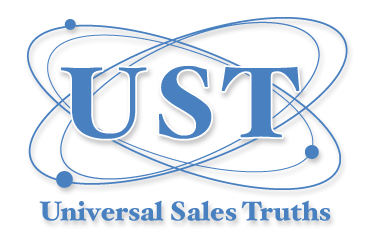How to design a fair and equitable compensation package is a topic that will be argued for eternity. Why? Because senior executives typically feel successful sales execs get paid too much. And most of the time sales execs feel they don’t get paid enough.
In general, companies design lucrative compensation packages when it is necessary to accelerate a product to market. This was the case in the early 1990s when EMC, the company I worked for, hired sales execs and sales managers with industry experience as well as strong relationships with decision-makers at large IBM mainframe accounts. The idea was to gain immediate access to major accounts that had a need for massive amounts of data storage. There is no substitute for hiring a rep that can pick up the phone and secure an appointment with a high-level decision-maker the first week on the job. The combination of an excellent product, along with sales execs that had relationships and knew how to sell, allowed EMC to deliver more mainframe storage than IBM in a few short years. However, if you didn’t perform on a quarterly basis, the company was quick to pull the plug. Attractive comp plans typically come with consequences. Perform or be replaced!
However, as time went on, and EMC became the market leader, the comp plans were significantly reduced.
When you represent a company and product that outperforms the competition, and you have numerous references that will testify to this, the sales process is significantly easier. Therefore, it was not as necessary to hire the seasoned reps that it needed in the past. In addition, the new reps were very happy with a less lucrative comp plan.
One challenge for management was how to deal with the sales execs that put EMC on the map originally. Some left for other start-up opportunities. Others moved into sales management. And some, like myself, remained as an individual contributor doing my best to navigate the ever-changing comp plan that was constantly being adjusted to reduce income.
The simplest way to reduce income is to set an annual quota that is unreachable. In my opinion, this is big mistake. There is nothing worse than assigning a quota that is so high that the rep feels it is unattainable on day one of the new year. I certainly understand the corporate logic, but there are better ways to handle it.
Although the “available income” was somewhat consistent on an annual basis, actually achieving it was another story. Comp plans are typically designed to incentivize the reps to move the products the company feels will generate the most profit, as well as position the company for future growth and success. To this point, there might be higher commissions or bonus programs tied to certain products. It is the sales execs’ responsibility to digest the comp plan and implement a sales strategy to maximize it. Therefore, your focus might vary from year to year, in light of the comp plan modifications. For example, the shift might be from revenue-based to margin-based. Or possibly bonuses paid for new account development. Regardless of the incentive plan, your responsibility is to maximize it.
The good news is, if you have a successful track record of hitting your numbers, there will always be sales opportunities available. That is one of the reasons I love sales. Excellent sales execs will never be out of work. They simply are too valuable to the bottom line of any company.
So what is the point of this article? On an annual basis, evaluate the components of your comp plan in conjunction with your territory, experience, relationships, etc., and determine if you are satisfied with your forecasted income. If you are not, meet with management to discuss your concerns. If management refuses to adjust the plan, then you only have two choices. Live with it or begin a job search. In either case, you are in charge of the decision, not the company. And if you have a proven track record of success, there should be no need for concern. Perhaps the industry you are currently working in does not offer the same income potential as it once did? Or maybe you are getting a bit stale or even bored with the product or service you represent. It might be time to explore opportunities outside of your area of expertise. A fresh start might be just what the doctor ordered.
I dedicate an entire chapter to this topic in my book. Sound people skills, integrity, a strong work ethic and, of course, sales experience, are always transferable.
Don’t be afraid to step out of your comfort zone for the right opportunity.
Universal Sales Truth #4
Work your land
Proverbs 28: 19-20
Work your garden- you’ll end up with plenty of food;
Play and party-you’ll end up with an empty plate.
Committed and persistent work pays off;
Get-rich-quick schemes are rip-offs.
